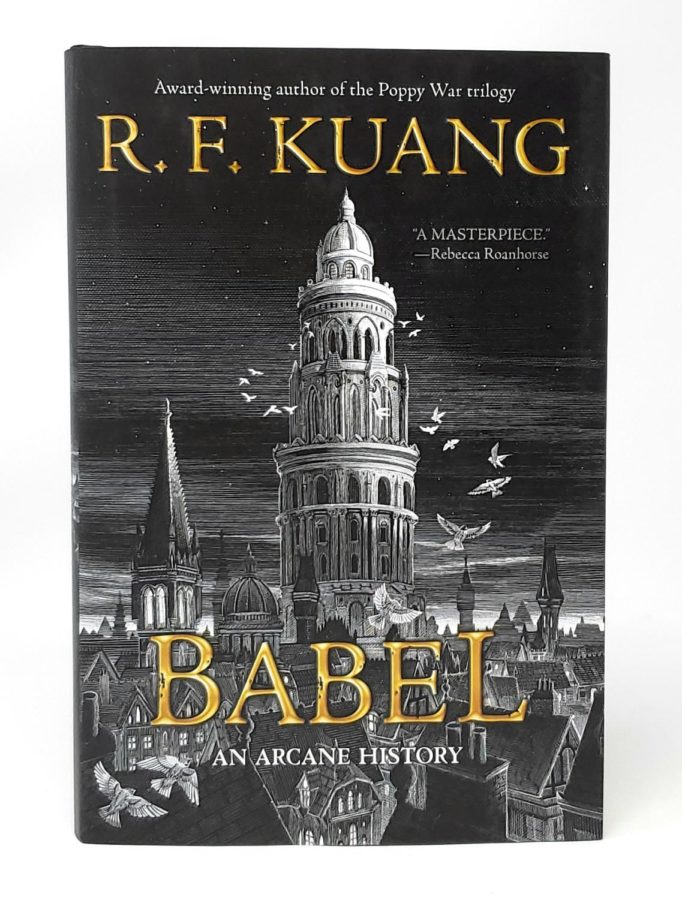‘Babel’: a story about outsiders, academia, and the British empire
Babel: Or the Necessity of Violence: An arcane history of the Oxford Translators Institute (or more simply, Babel is the latest novel by Poppy War Trilogy author R.F. Kuang. The historical fiction novel was released in August this year, gained popularity through TikTok, and was nominated for the Goodreads 2022 Best Fantasy award.
January 20, 2023
The “dark academia” sub-culture and aesthetic gained popularity widely on TikTok, promoting romanticization of long, dreamy hours disconnected from the world with your head stuck in books. There is no surprise, then, that it is heavily influenced by literature – particularly “The Secret History” by Donna Tart – which ironically critiques the very aesthetic which the subculture romanticizes. In “Babel: An Arcane History,” R.F. Kuang, author of “The Poppy Wars,” adds to the cannon of dark academic literature in what is sure to be a classic. The novel was published in August of 2022, but has regained popularity on TikTok after a reader posted a viral, controversial review.
“Babel” follows narrator Robin Swift and his friends as he attends the fictional Babel translation institute of translation at Oxford. As Swift learns about the power of translation and the magical silver-working, he struggles with the implications of how the Babel translation institute protects him and aids Britain in colonizing the world, including his homeland. More historical than fiction, the novel is as much a tribute to language as it is a story.
In fact, one of the best parts of the book is the copious amounts of research and etymology, supplied by information dumps and footnotes. While they contribute nothing new on their own towards the literature surrounding racism and colonialism, they are likely interesting tidbits for the reader and food for thought. The character building here is also phenomenal, with Kuang clearly drawing readers to all the characters – even the ones that end up hurting us the most. The painstaking attention to detail here almost seems enough to outweigh the sometimes shoddy storytelling of the book.
As a warning, around book three to four, the novel shifts dramatically from relatively surface-level plot coverage and in-depth researched background to heavy, fast driven plot. Kuang no longer allows characters to act off each other, but forces them to merely survive. This shift in pacing is where the storytelling is most likely to fall flat. This is the weakest point in the storytelling of the novel as there was rarely time for neither the characters nor the reader to digest what had happened until the very last breath. Here it is not so much the plot, but the message of the novel that takes center stage, if only through heavy-handed ruminations by Robin.
Perhaps the biggest gripe I have about the book was the underused potential. In a handful of scenes I can point out exactly what could have happened to allow readers to love the characters just a bit more, to make the heartbreak of the finale hit just a bit harder. Part of the reason I saw such potential is because I genuinely enjoyed seeing Oxford through the eyes of Robin and seeing the story play out, regardless of how I knew it would resolve. Because although Babel may have its flaws, it keeps you hanging until the very end.









